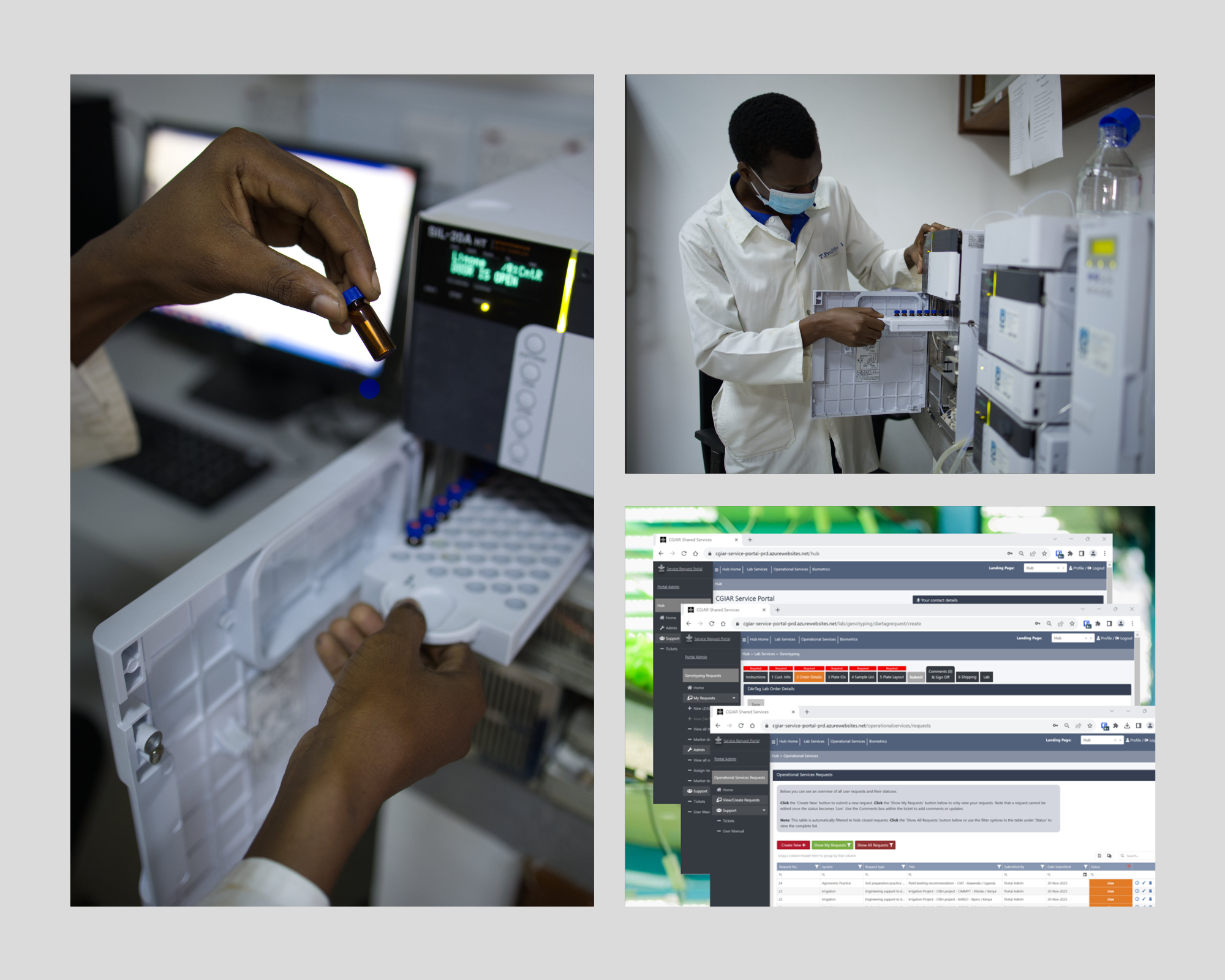A faster and easier way to order and track key services
A new Breeding Resources Service Request Portal is now available to make it easier for users to request and track a large range of CGIAR breeding support services. The Portal is the next phase of the Breeding Resource Initiative‘s service request and tracking platform – which launched earlier this year to handle requests for genotyping analyses (Low and Mid density) for 16 crops.
The aim is to make it easier for both CGIAR users and external partners such as NARES to access modern digital request systems that speed up submissions and reduce human error – by providing online submission forms, automating the production of time consuming submissions such as plate maps, and recording key metrics (such as how long requests took to deliver).
A range of new online services
Designed and built in partnership with Scriptoria Sustainable Development Solutions’ Data Team, the newly expanded Service Request Portal now also covers new requests for elemental laboratory analyses (to quantify key elements such as zinc, iron, aluminum, chromium and titanium) and requests for Trialing and Nursery (‘Operational Services’) support. The latter will deal with support requests covering a wide range of areas – from work to improve seed processing, storage and agronomic practices, to services to support partners in improving phenotyping protocols and irrigation systems.
Contributing to measurable impacts
The digital ordering and tracking capabilities of the new Service Request Platform will greatly cut down the day-to-day management burdens of teams who would otherwise have to manage requests via email and spreadsheets. It also allows teams to better track and improve (if necessary) the quality of the services that they are providing – for example by tracking the time from a request being submitted to it being delivered.
Resources:
- New users can access the Breeding Resources Service Request Portal here.
- To watch a video tutorial of the Service Request Portal please visit this page.
- You can find a detailed walk through of original Genotyping request system here.
—–
We would like to thank all funders who support CGIAR research through their contributions to the CGIAR Trust Fund.
